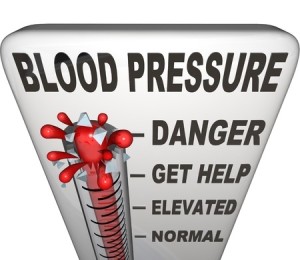 We all know that having high blood pressure is bad, but how exactly does it happen? The answer to that question requires some background knowledge.
We all know that having high blood pressure is bad, but how exactly does it happen? The answer to that question requires some background knowledge.
An Explanation of Blood Pressure
Sure, you’ve heard of blood pressure and recognize the tool your doctor uses to determine your numbers, but could you describe it to a class of curious second graders? Maybe not!
Blood pressure is a measure of the force of your blood pushing up against artery walls. Since the heart is tasked with the job of pumping blood into the arteries, high blood pressure strains the heart.
Normal blood pressure is less than 120/80, and the warning bells ring between 121/81 and 139/89. Official high blood pressure begins at 140/90.
Conditions Contributing to High Blood Pressure
Essential high blood pressure, or hypertension, is the most common form but doesn’t have specifically identified causes. Doctors and scientists have, however, listed factors that can contribute to the development of high blood pressure. These include smoking, being overweight and/or sedentary, eating too much salt, drinking more than two drinks per day, stress, aging, and genetics.
Of those factors, salt intake and aging have the most proof behind them. People in the northern islands of Japan eat more salt than nearly any other place in the world, and they also have the highest ratios of essential hypertension. People on salt-free diets, on the other hand, have very healthy blood pressure levels. Scientists also believe that aging causes a nearly uncontrollable rise in essential hypertension.
Secondary hypertension, on the other hand, is high blood pressure that results from a different physical condition. Kidney disease, for example, can send blood pressure soaring. Tumors and birth control pills containing estrogen have also been linked to higher blood pressure.
Pregnant women also need to carefully watch their blood pressure levels, as pregnancy can instigate problems that normally wouldn’t have been risk factors.

 Patient Login
Patient Login